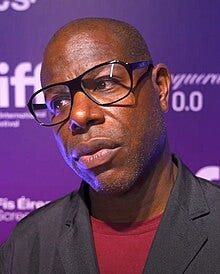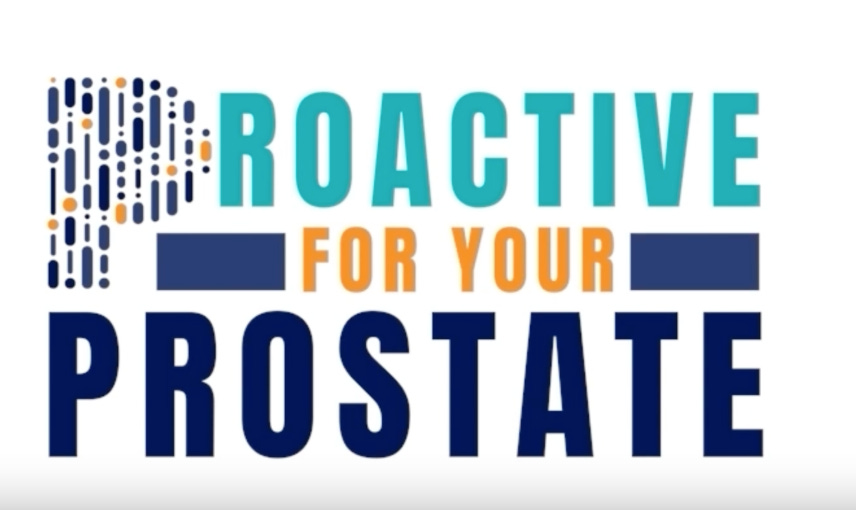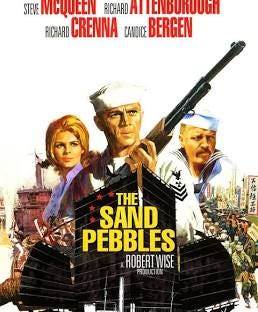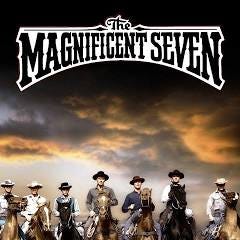British director Steve McQueen shares his prostate cancer story, urging men to be screened
Endorses effort to create prostate cancer screening in the U.K.
(Director Sir Steve McQueen:Dublin International Film Festival)
By Howard Wolinsky
During a routine prostate screening in 2022, Academy Award-winning British director Steve McQueen was found to have prostate cancer.
He described his cancer as “a small [prostate] tumor, and therefore obviously caught it very, very, early.”
How early? Was it early enough that he could have gone on Active Surveillance?
We don’t know and probably won’t.
McQueen, 55, told the media he is now “fully recovered and fully functional.” Good news.
McQueen has a family history: His father Philbert McQueen died from prostate cancer in 2006—plus as a Black man he had increased risk.
“I knew there could be a hereditary situation, whereby, I could develop prostate cancer,” he said.
So he began undergoing regular MRI scans and prostate-specific antigen (PSA) checks.
A U.K. friend of mine, who has a family history and is on AS, said: “I guess {McQueen] was taking no chances with his family history and must have seen something trending in his results that pushed him into action.”
***
Filmmaking is an expensive enterprise. Financial backers require insurance physical exams for key players.
British actor Stephen Fry, a survivor of advanced prostate cancer, explained the process from an actor’s point-of-view:
"Being an actor requires attendance, punctuality, reliability, and dependability: every new production begins for me not with a costume fitting or rehearsal, but a check-up," he wrote.
"Without a medical all clear, insurance companies won't cover you and without cover a producer can't risk hiring you. So all actors lucky enough to be in regular work will routinely find themselves in a doctor's surgery several times a year having their abdomens palpated, blood pressure taken, and relevant bodily fluids drawn."
Fry used his diagnosis and treatment as a teaching moment. He published an article about his cancer, co-authored with his doctor,
So did McQueen.
***
McQueen went public at an event at the British House of Commons to support Prostate Cancer Research, which is promoting the idea of screening for prostate cancer in U,K. There is no prostate cancer screening program in the U.K., unlike those for breast, colon and cervical cancer.
He supports Prostate Cancer Research’s Proactive For Your Prostate campaign, and its Everyman A Scan slogan, launched with the help of U.K parliamentary lawmakers and members of the prostate cancer community to raise awareness about the importance of nationwide regular screening.
David Lammy, the foreign secretary, Josh Babarinde, a Liberal Democrat MP, and the Conservative former minister James Cleverly co-hosted the event, which launched a Prostate Cancer Research report calling for a targeted national prostate cancer screening program
Check out the campaign: https://proactiveforyourprostate.co.uk/
***
Sir Steve (Commander of the Order of the British Empire (CBE) 2020) McQueen revealed his prostate cancer story on Nov. 14—the two-year anniversary of his surgery. He was sharing in hopes of encouraging other men to undergo prostate cancer screening to save lives.
One in eight men will get prostate cancer, noted McQueen. “But one in four Black men will get prostate cancer, and one in twelve Black men will die of prostate cancer. So for me, it was about preempting it. The fact that I was preempting the situation for years was, again, my savior in that way. So, just preempt it and get it early.”
“What’s happening is that men are being left to their own devices to navigate this on their own,” he said.
***
McQueen delayed treatment two years ago as he was about to begin production on his new film, “Blitz,” about the eight-month bombing in 1940 by Hitler’s Luftwaffe of London.
McQueen was hospitalized for two days and worked from his bed, and then worked from home. “I was just doing stuff in bed on the computer, working, emailing and whatever, but I kept it private at that stage,” because he didn’t want cast and crew to be “concerned.”
Blitz is in theaters and will air on Apple-plus starting Nov. 22.
(Steve McQueen on the set of “Blitz.")
McQueen’s 12 Years a Slave won the Academy Award for Best Picture, the BAFTA Award for Best Film, and the Golden Globe Award for Best Motion Picture – Drama. McQueen was the first black filmmaker to win the Academy Award for Best Picture.
He known for directing intense films such as Hunger (2008), a historical drama about the 1981 Irish hunger strike; Shame (2011), a drama about an executive struggling with sex addiction; 12 Years a Slave (2013), an adaptation of Solomon Northup's 1853 slave narrative memoir; and Widows (2018), a crime thriller set in contemporary Chicago. One of my favorites is Small Axe (2020), a collection of five films "set within London's West Indian community from the late 1960s to the early '80s.”
***
I have a suggestion for an addition to McQueen’s oeuvre: “Prostate,” the story of the ups and downs of a man coping with advanced prostate cancer. Maybe it could be a dying bank robber turned Robin Hood, who conducts a final heist and gives the proceeds to researchers. Offshore bank accounts are part of the transfer,
Do have any “film treatment” ideas in terms a movie plot? Let me know.
Don’t confuse cinematic McQueens
By Howard Wolinsky
Two Steve McQueens have made a mark in film with Academy Awards.
I just mentioned British director Sir Steve McQueen (Academy Award for best film, 12 Years a Slave).
And then there’s American actor Steve McQueen (Best Actor, Academy Award fpr the 1966 film, The Sand Pebbles, an epic war film). This McQueen was a 1960s antihero featured in the likes of “The Magnificent Seven.”
Steve McQueen, known as “Mr. Cool,” was diagnosed with pleural mesothelioma in December 1979, and died of cardiac arrest less than a year later at age 50. His cancer was linked with asbestos exposure from his time in the Marine Corps prior to his acting career.
Don’t miss Dr. Jonathan Epstein’s first patient forum since leaving Hopkins: The Active Surveillor’s ‘AS 25’ webinar
By Howard Wolinsky
Famed uropathologist Jonathan Epstein has kept a low-profile since resigning from Johns Hopkins in February 2024 following a dispute with Hopkins, his professional home for almost 40 years.
Dr. Epstein is in the process of opening a new consultation practice soon in New York City. I will report details on how to reach him soon.
Epstein will be speaking on a panel on what happened in prostate cancer in 2024 and what’s on tap for 2025.
The program is scheduled for noon-1:30 p.m. Eastern on Saturday, January 4, 2025.
The program is free for paid and founding subscribers to TheActiveSurveillor.com. If you don’t have a paid subscription, can subscribe here and join us:
If you can’t afford a subscription, send me a note and we’ll get you in.
This will be Epstein’s first appearance at a patient forum since April 2023, a program I moderated for Active Surveillance Patients International.
TheActiveSurveillor.com broke the story a month later on the dispute between Dr. Epstein and Hopkins that led to the pathologist’s resignation. More details came out in TheActiveSurveillor.com and the Washington Post.
I am delighted and honored that Dr. Epstein will join a distinguished panel for AS 2025. I suspect that digital pathology and AI will be among the subjects that will be discussed.
Dr. Epstein has had a major impact on Gleason 6 scoring and creation of the Grade Group system and other areas.
Previously announced panelists are:
—Brian Helfand, MD, PhD, chief of urology at NorthShore University HealthSystem outside Chicago, an expert not only in prostate cancer but also in molecular biology.
—Christian Pavlovich, MD, who runs the Active Surveillance program at Johns Hopkins and recently co-authored a major study on diet.
—Timothy Showalter, MD, MPH, medical director of Artera AI, which has made news with its prostate test to help patients decide whether to go on AS.
ASPI presents: How you can help advance research on Active Surveillance
By Howard Wolinsky
Without clinical trials, such as ProtecT, patients with lower-risk prostate cancer would have had no choice other than aggressive treatment with risks of side effects impacting their quality of life. I have participated in about a dozen trials as a patient and a patient researcher.
I highly recommend participation in trials. I have been in studies on diet and low-risk prostate cancer, genetics and medications and low-dose aspirin and preventing heart attacks. You’re paying it forwardcwhen you join in.
Look for trials on Active Surveillance that you potentially can join at ClinicalTrials.gov
Active Surveillance Patients International (ASPI) is holding a webinar at 12:00PM ET Saturday, November 30, entitled “How you can help in clinical research on Active Surveillance.”
REGISTER HERE: https://zoom.us/meeting/register/tJIocOCupz4jGtX8fHJ036bYGHYIjLfwfRzk
Speakers will include Kevin Shee, MD, PhD, a researcher at the University of California, San Francisco, and Mike Scott, founder of Prostate Cancer International and an early advocate for Active Surveillance.
Dr. Shee has been involved in multiple studies, the most recently one on whether men 75 and above should stop active surveillance.
Though not a prostate cancer patient himself, Mike Scott was the founder of one of the first support groups for men on AS. ASPI this year presented him with its 2024 Thráinn Thorvaldsson Award for Patient Advocacy.
A question-and-answer session will follow the presentations.
If you have questions, please send them to: contactus@aspatients.org
Climbing Dr. Geo’s ‘Prostate Cancer Summit,’ addressing AS, herbs, diet, prostate massage, and more
By Howard Wolinsky
Dr. Geo Espinosa (you may know him as the author and podcaster “Dr. Geo,”), the naturopath specializing in prostate care on faculty at New York University, is hosting a free week-long “Prostate Cancer Summit” you shouldn’t miss.
The free event runs November 19 - 25, with an “encore weekend” November 29 - December 1, 2024. Register here: https://drtalks.com/summit/prostate-cancer-summit/?uid=814&oid=83&ref=4266 Dr. Geo is interviewing more than 40 experts on prostate cancer plus me.








I miss the OG Steve McQueen. On subject…
More screening means more butchery more over treatment more ED more misery and greater profits.